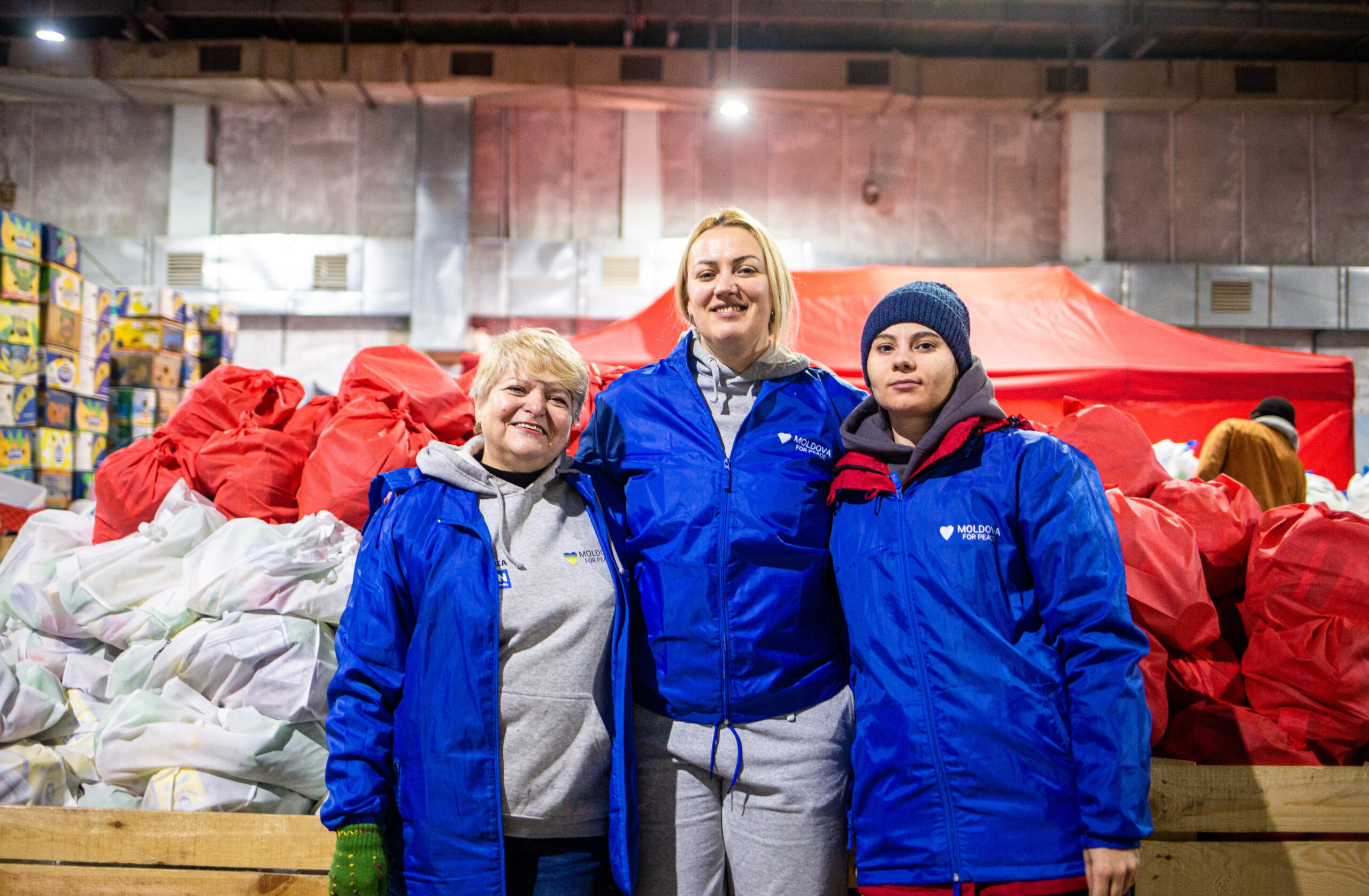
Managing the refugee crisis: Women from Ukraine and Moldova collaborate in the humanitarian sector
February 24, 2022 was a terrible day for the whole world – the Russian state began military aggression against Ukraine, another attempt to bend the identity of the neighboring country and invade it from all aspects. The war has been going on for over nine months already. Although numerous negotiations were held to establish peace, and despite the humanitarian contributions from uncle Vasile over the fence, to renowned organizations, the war still has not been stopped.
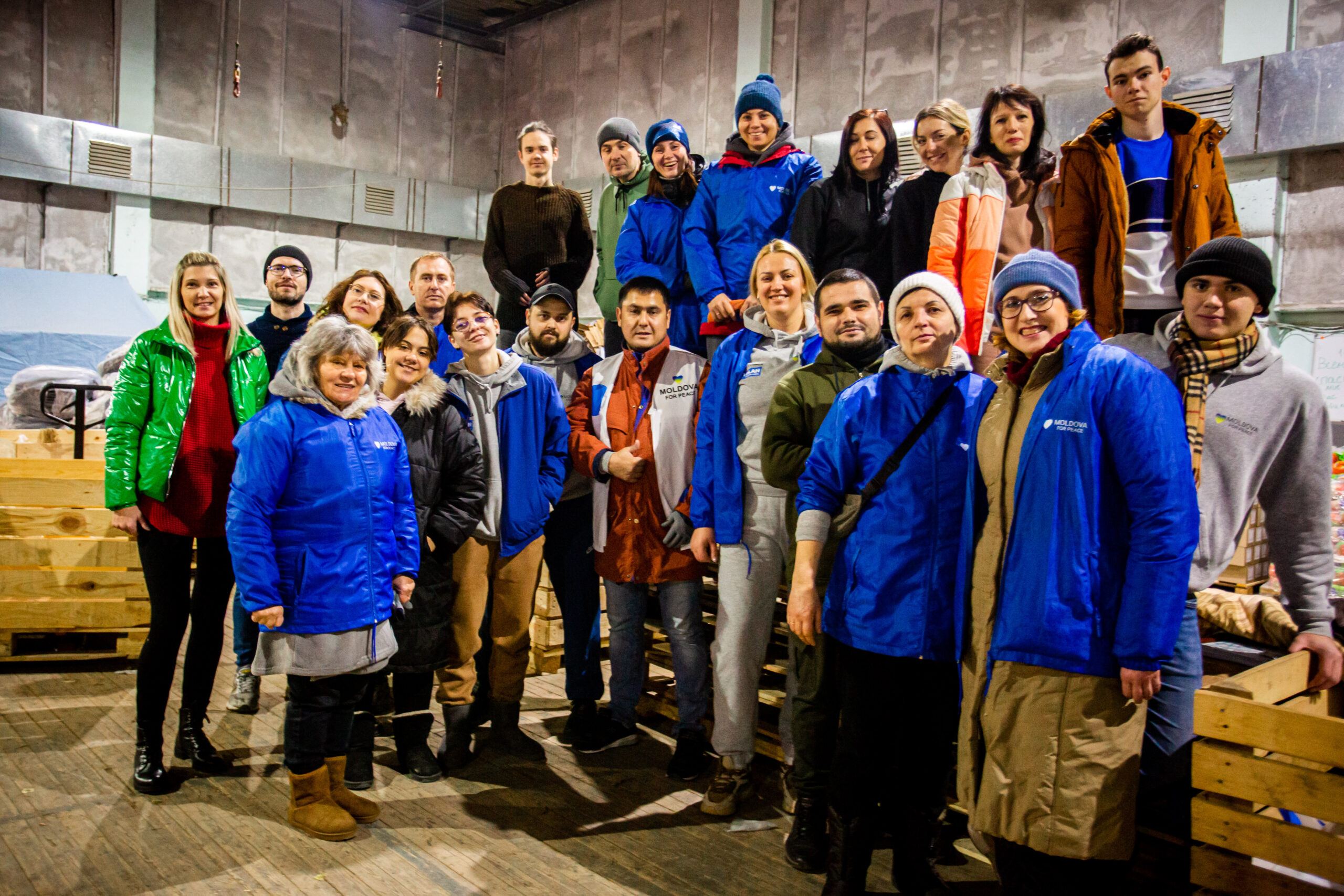
Moldova was mobilized almost instantly to provide aid to refugees and asylum seekers. Since then and until now, the Moldovans and their supporters welcomed tens of thousands of people from Ukraine, but many of them stayed in Moldova, with the hope of returning home as soon as possible. Most of them are women, who left behind husbands and adult sons, encouraged to fight for Ukraine and their country. They work, continuing their life here to support their families, but also help other refugees wholeheartedly.
For this article, I spoke with several women from Ukraine and Moldova who are working on refugee crisis management.
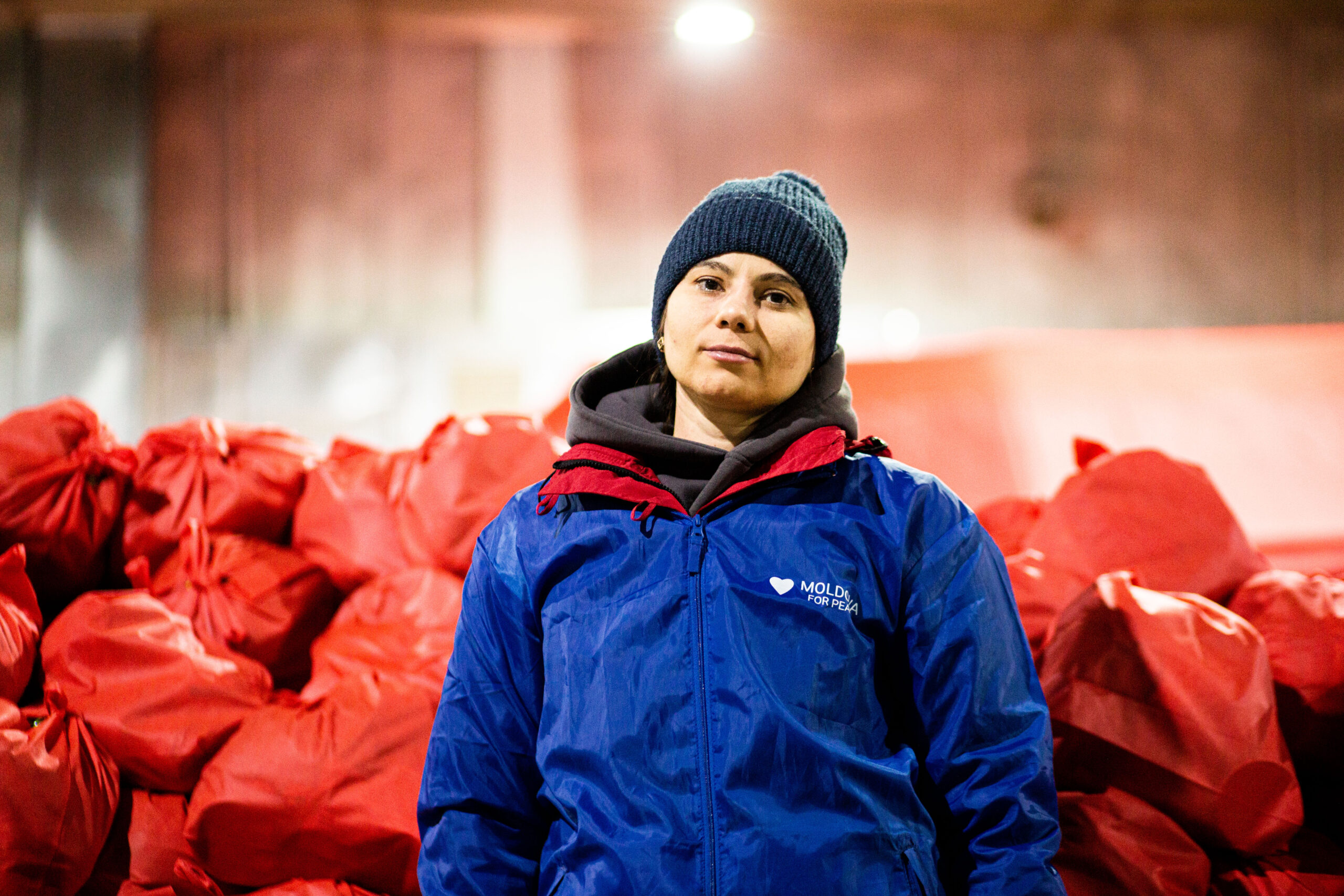
Elena is from the Odesa region: “I arrived in Moldova on 3 March and was sure that in a week I would return home. But after a month, I realized that the war would not end soon. All this time, I was depressed, like in a fog“, Elena says. She came with her 11-year-old and realized very well that it was practically impossible to share with him the emotions and feelings she was going through – it was difficult to explain how they got here and everything seemed like a dream. “The family that hosted us here registered us on the platform to receive help – although I felt uncomfortable taking products that maybe someone else in a worse situation needs, the hosts encouraged me to come, because they were worried about us,” Elena says. She and the child received help at the Moldova Film warehouse, which belongs to the Moldova for Peace initiative – a civic movement that was mobilized to provide aid to refugees from Ukraine and, until now, continues to contribute to managing the flow of refugees, creating integration activities, as well as development of projects that allow them to learn more about their rights in the country and others.
“Although I had seen the announcement on the door that warehouse volunteers were welcome, I had no plans to become one – I believed and hoped that I would return home as soon as possible. But I decided to stay for an hour to help Mrs. Maria, the volunteer at the clothing section at the time, to arrange all the donated items.” Thus, Elena and her child have stayed until now, offering help to the initiative in every possible way: “He told me, ‘Mom, we’re coming tomorrow, we’re just helping people.’ We instantly refocused on this. The big plus was communication, but we also had an activity that distracted us from the phone, from the news“, Elena adds. This continued for a few months, until Elena was proposed to be in charge of the clothing section instead of Mrs. Maria. “All and all of us are here for a purpose – yes, we have different characters, moods, each of us is going through challenges and worries, someone is from Kyiv, someone from Mykolaiv, every time we write to our people and ask them if it’s quiet there . We still go to events, see each other at dinner“, Elena says. During the Coronavirus crisis, Elena closed her jewelry business, but she is a doctor by profession. “Of course we have tense situations, but we know what our people are going through and we try to solve everything. The emotional tension about what is happening at home is always present. But people come here anyway, with a pronounced sense of humanity, empathy“, Elena points out.
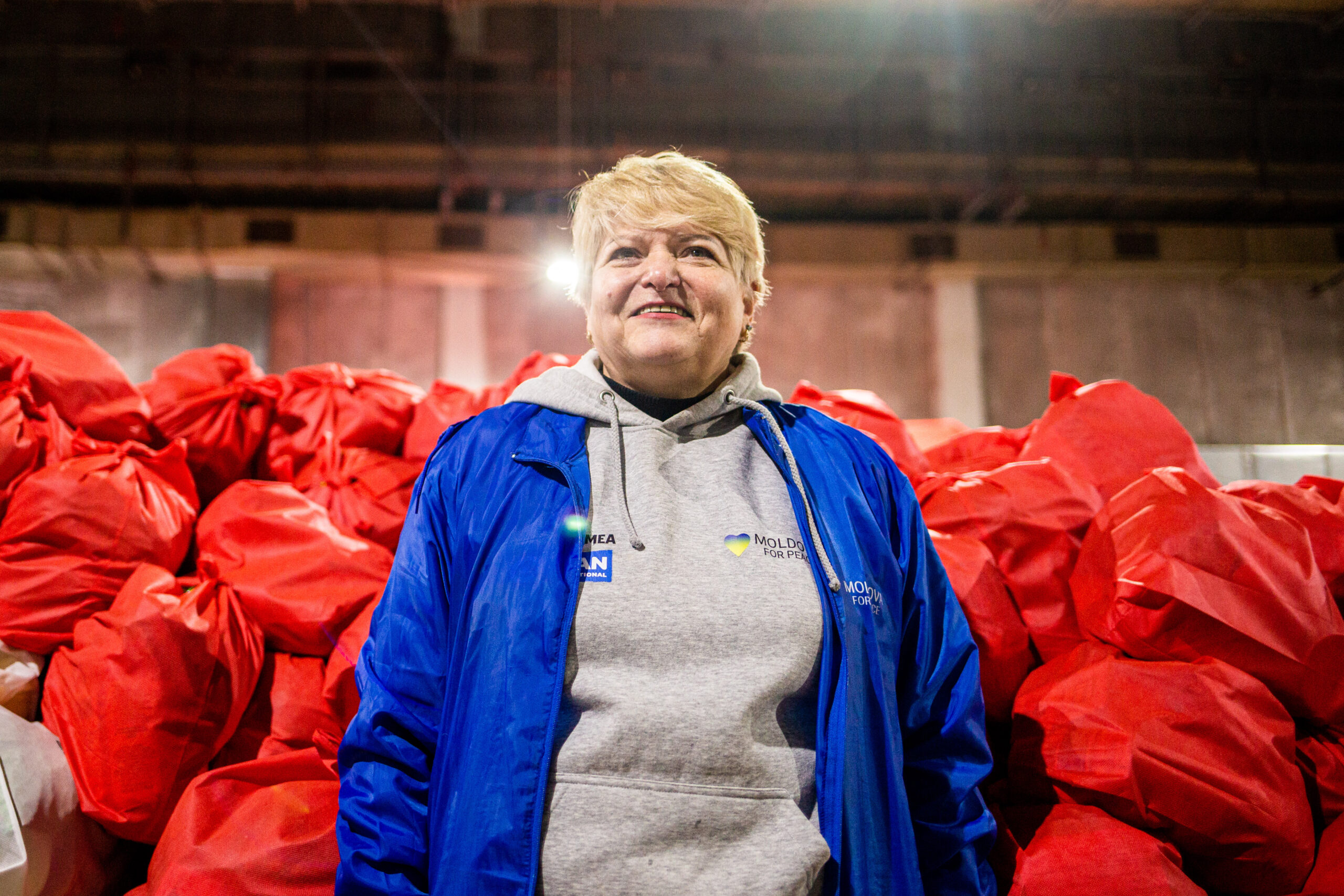
Tanya is actually from Moldova, but she lived in Odesa for many years. She worked as a seamstress. In April 2022, after learning about the opening of the warehouse, she decided to come to Chisinau. “My son was volunteering here. The day after my arrival in Moldova, I started coming to work at the warehouse. They welcomed me so well into this united collective, where people help each other“, Tanya recalls. She tried to work abroad as well, but in a short time they refused her, because she has Moldovan citizenship, although she spent her life in Ukraine. And so she returned to the warehouse. “My child and my granddaughter stayed behind, in Odesa. But the collective here is superb and together we distribute the donations we receive. And I’m not afraid of work, especially since we always help our people. I have a dream, like all of us – may this war end. Odesa is without electricity, heat, water, and I worry a lot about my relatives“, Tanya says. “We help people with a nice word, and I feel good when I see the result of my work on their faces. Refugees keep coming here.” Tanya mentioned that if such centers as the Moldova for Peace warehouse opened in Odesa, she would definitely share her knowledge and experience gained here to develop them.
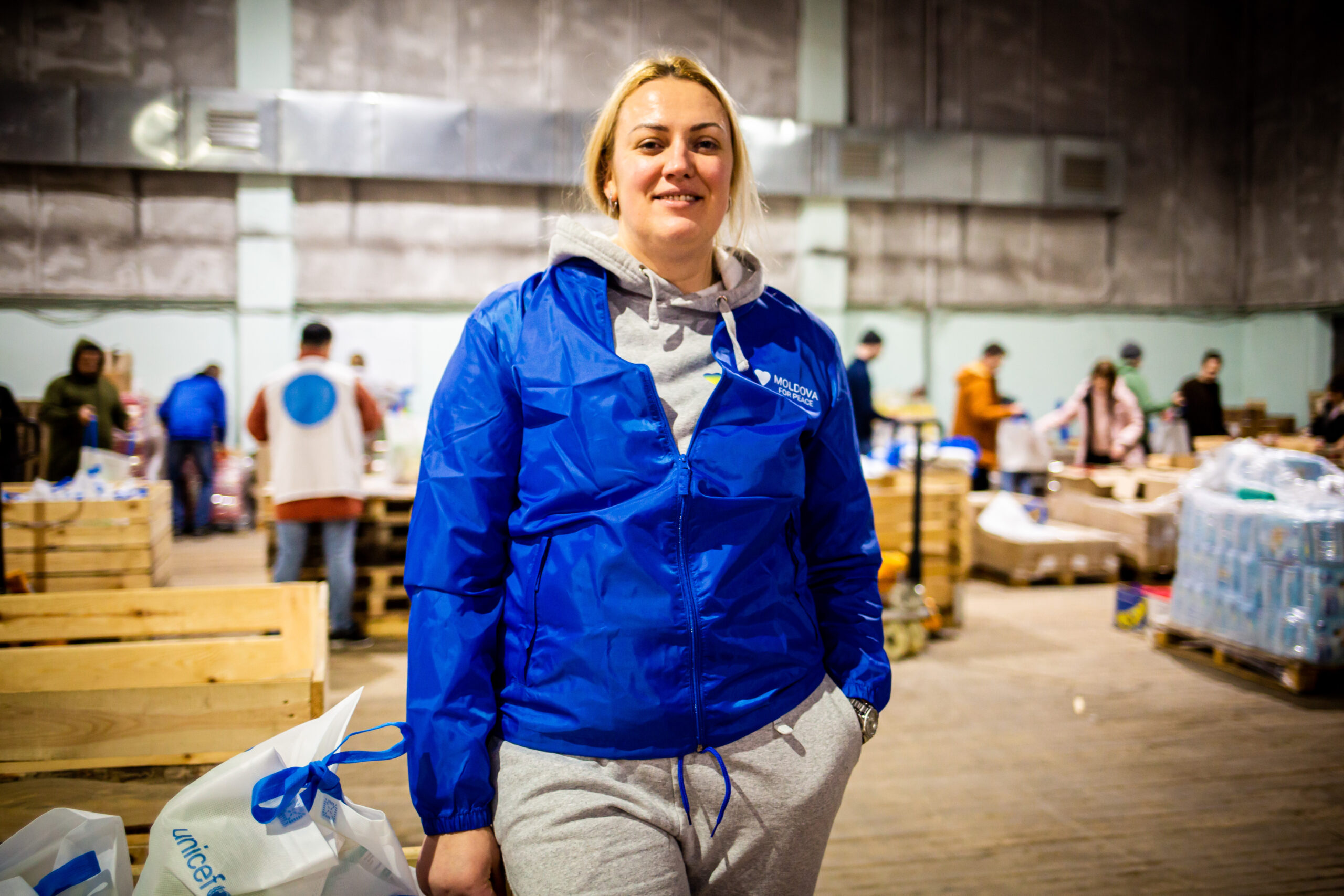
“The first to jump to our aid were the women. Then the men also joined in, helping with porter work and other things,” Natalia says, coordinator of the Moldova Film warehouse for the Moldova for Peace initiative. In the beginning, the Moldova Film team also contributed with help. “We encouraged more people to come and support us in collecting and distributing the goods and that’s how the team grew. We are extremely happy that we have such support from the refugees from Ukraine – yes, some have gone further, to find a better life, but we have people who have been with us from the beginning, even if they have salaries or don’t“, Natalia mentions. “Then, we didn’t really have time to get to know each other, but now I know that we also have doctors in the team, and sailors, and students, engineers, directors, a DJ, a dance teacher. But they integrated quite easily. It didn’t matter what profession you have, because kindness and humanity united us.”
Natalia is from Moldova and her first thought, when she offered to volunteer, was to help her country, but also her friends who came from Ukraine: “We offered packages of food and hygiene products not only to those suffering from the war, but also to host families. Donations for refugees came from ordinary people here, and from various national and international organizations.” Natalia says that she gained a lot of experience in the position she holds – new knowledge, gained new friends, and had the experience of participating in various courses. “Working more in the private sector, I realized that I don’t want to go abroad, but I would have liked to work with European companies. Being a coordinator, I managed to meet partners from Europe, to learn more about their strategies“, Natalia adds. According to her, the warehouse team has 15 people, of which 12 are women, always open-hearted to help. “Perhaps, from the beginning, working here allowed everyone to forget what was happening at home, but the fact that they continue to help people who, like them, were left with nothing, gave them an impulse in their daily work. Now, everyone has their own regime and rhythm, but they are always ready to do an extra thing, having a more involved attitude to find what is needed for the refugees who come to the warehouse. Even if the job is hard, even if sometimes you don’t feel your back and hands after a day’s work,” Natalia says.
By the way, she mentioned that the warehouse workers benefit from various courses – communication and psychology of trauma and how to talk with people who are suffering, various courses within the Community Center 151, open for refugee women, youth, and children from Ukraine, but and for those from Moldova, trainings for volunteers from the Volunteer Academy, both projects opened through the initiative. “We also benefit from group and individual psychological counseling sessions, thanks to the support of some organizations. There were team-building evenings to strengthen the team. Some volunteers also went abroad for some trainings. Many say that they did not have such opportunities even during their student days or when they were working“, she mentions.
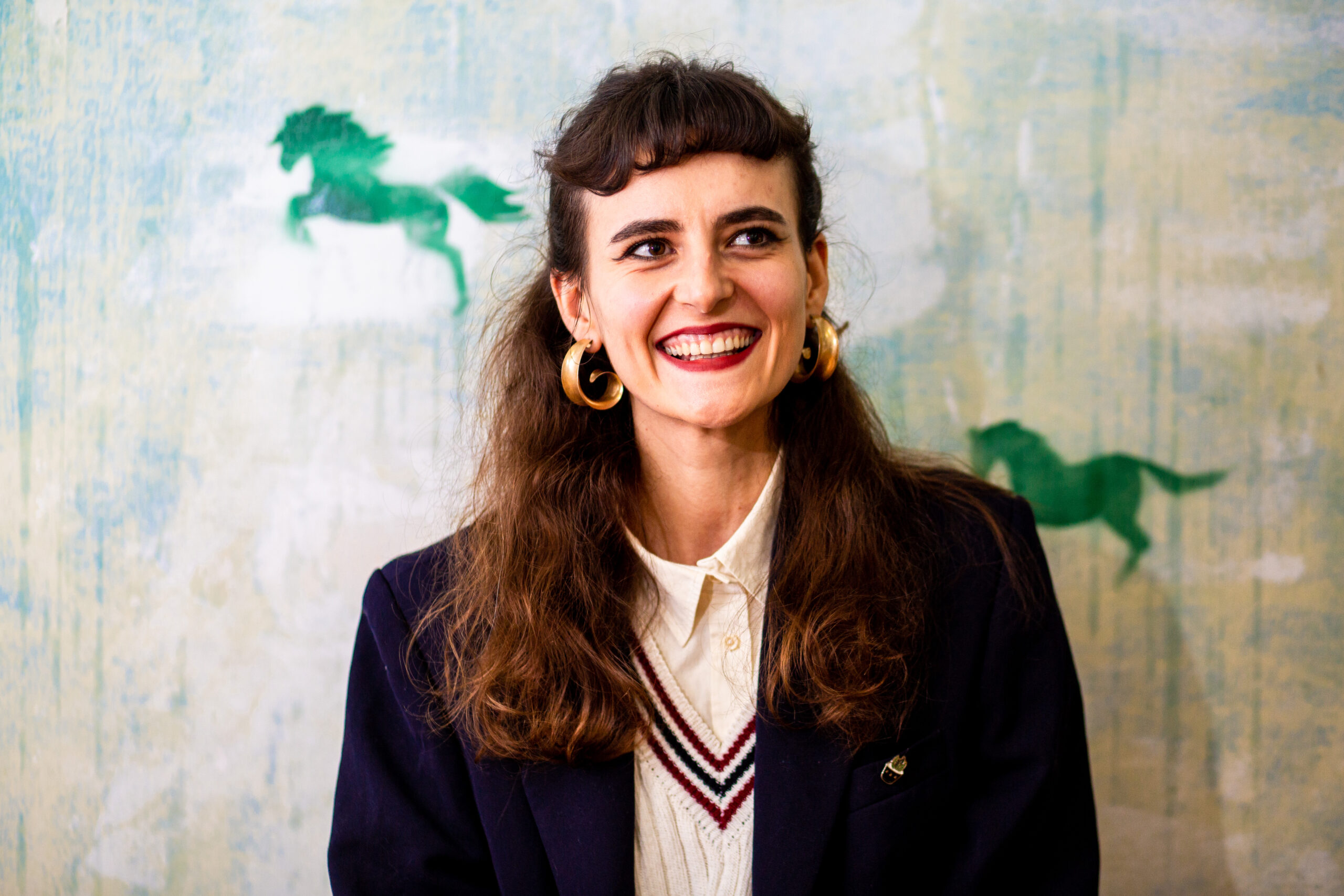
Lilia, co-coordinator of the project “ROBOTA: Career Counselling and Protection of Labour Rights of Refugees“, says that it is difficult for her to identify herself as a humanitarian actor: “It is a new identity, which I have to incorporate in my daily life and to accept it“, she mentions. The war made her work in an unfamiliar field and accept her new role, although she had volunteered before – voluntary work and humanitarian work have similarities but do not overlap, according to her: “Since the beginning of the war, I saw my involvement as an action of solidarity, something natural, which any person can do, regardless of profession.“
In recent years, Lilia has worked in the field of labor rights, especially because, in her opinion, compared to other fundamental human rights, in Moldova less work is done on labor protection. “We have various organizations that deal with the protection of human rights, but related to freedom of expression, participation, association, women’s and children’s rights. The right to work is somehow neglected, and, apart from trade unions, there are no more organizations dealing with this field. In our team, we try to combine the interests we have and adapt to the new reality in Moldova, that is, to a wave of new people, refugees, usually women with children, whom we do not want to accommodate only as guests, but to integrate them into our society, as well. The sphere of work is a field of integration“, she adds. Thus, through the Robota project, the team tries to offer all possible support to those who want to get a job, offering career and legal advice – it is important not only to give a person the necessary tools to prepare them to work in Moldova, but also to know the protection mechanisms in the field of function. “Refugees, being a vulnerable group, do not know the country’s legislation, they do not have the relationships and knowledge that Moldovans possess. We try to be this space that the group turns to when they face problems at work“, Lilia says.
Since September 2022, since the project was launched, and until now, out of 298 people who benefited from the services of the Robota project, 239 are women. “I don’t think it was easy for them to take this step. But nine months have already passed and, having other people in their care or supporting those at home in Ukraine, they decide to get involved, because they have to face several parallel realities – that of the war and that of here. Certainly, they try to accommodate these traumatic experiences in order to manage to live on, even though it’s complicated“, Lilia tells, adding that, structurally, our country does not have the conditions that really encourage them to work. Some women do not know in whose care to leave their children, and the temporary protection of refugees has not yet been adopted and in its absence, children of parents who have not applied for asylum in Moldova, the vast majority of the group, are deprived of the full right to education. It is also difficult for women to find a job with flexible hours that will allow them to take care of children, especially in the region.
“In our team, we believe in horizontality. Although it is difficult to coordinate such a large team, with such diverse and vast experiences, I think we are doing quite well, having the right people, with a humanitarian approach to things“, Lilia emphasizes. The Robota project will continue to function even after the end of the war, because there are already cases of refugees who decide to settle in Moldova. “In the beginning, I didn’t know the logic of war, only from books. The humanitarian actors we interacted with had gone through it and urged us to plan our activities in the long term“, she adds.
The power of these women working in the humanitarian sector and collaborating to create a safe space for everyone is limitless. With mutual support, they continue to work and lay the foundation for the conditions and activities necessary for refugee integration into local communities.
Article by Ilona Sergheevna
Pictures by Octavian Fedco
